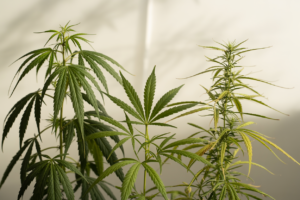- Challenges and Quality Standards
Global Cannabis Medical Markets Shift: Germany Tightens Rules While Nigeria Opens Doors

Contents
Contents
The global cannabis medical markets are experiencing dramatic policy shifts that highlight a growing divide between established and emerging markets. While Germany—Europe’s largest cannabis market—implements stricter online prescription controls despite reporting over 122 tons of medical cannabis distributed and a 9% increase in patient numbers, Nigeria’s legislature actively debates opening its doors to medicinal cannabis oil, potentially transforming Africa’s most populous nation into a major player in the continent’s emerging wellness sector.
These contrasting regulatory movements reveal fundamental tensions in how different nations approach cannabis medicine: mature markets grappling with oversight challenges amid explosive growth, while developing economies see untapped therapeutic and economic potential. For Greece and other European nations navigating their own medical cannabis frameworks, these developments offer crucial insights into balancing patient access with regulatory control.
Germany’s New Prescription Restrictions: Tightening Controls on Europe’s Largest Market
Germany’s decision to restrict online medical cannabis prescriptions marks a significant regulatory pivot for a market that has seen remarkable expansion since full legalization in April 2024. According to Germany’s Federal Ministry of Health, the new restrictions require patients to undergo in-person consultations before receiving cannabis prescriptions, eliminating the telehealth loophole that had facilitated rapid patient onboarding.
The policy shift responds to concerns raised by the Federal Institute for Drugs and Medical Devices (BfArM) about prescription quality and patient screening standards in remote consultations. Health officials documented cases where patients received cannabis prescriptions after brief video calls lasting under five minutes, raising questions about proper medical evaluation and documentation.
Key Changes in German Cannabis Prescribing
- ✓ Mandatory in-person initial consultation with licensed physician
- ✓ Comprehensive medical history review required before prescription
- ✓ Follow-up prescriptions may use telehealth after initial in-person visit
- ✓ Enhanced documentation requirements for prescribing physicians
- ✓ Stricter oversight of cannabis prescription clinics
Despite these restrictions, Germany’s medical cannabis market continues its impressive growth trajectory. The country’s pharmacies dispensed approximately 122 tons of medical cannabis products in 2024, representing a substantial increase from previous years and cementing Germany’s position as Europe’s dominant medical cannabis market, according to data from the German Cannabis Association.
💡 Market Growth Despite Restrictions
The 9% year-over-year increase in registered medical cannabis patients demonstrates that Germany’s market expansion continues even as regulatory frameworks tighten. This suggests strong underlying demand and growing physician acceptance of cannabis as a legitimate therapeutic option for conditions ranging from chronic pain to anxiety disorders.
Nigeria’s Cannabis Oil Debate: Africa’s Emerging Opportunity
While Germany refines its established medical cannabis program, Nigeria’s National Assembly engages in active deliberations about legalizing cannabis oil for medicinal purposes. This represents a potentially transformative policy shift for Africa’s largest economy and most populous nation, home to over 220 million people.
According to reports from Reuters, Nigerian lawmakers are considering legislation that would permit the cultivation, processing, and distribution of cannabis specifically for medical cannabis oils and related therapeutic products. The proposed framework would establish regulatory oversight while potentially creating significant economic opportunities in agriculture, pharmaceutical manufacturing, and wellness sectors.
Germany vs Nigeria: Market Comparison
| Metric | Germany | Nigeria |
|---|---|---|
| Legal Status | Fully legalized (medical & limited recreational) | Under legislative consideration |
| Market Maturity | Established, refining regulations | Emerging, developing framework |
| Population | 84 million | 220+ million |
| Policy Direction | Tightening oversight | Expanding access |
| Primary Focus | Quality control & patient safety | Economic development & access |
The World Health Organization has recognized cannabis’ therapeutic potential for various medical conditions, lending international credibility to nations like Nigeria exploring medicinal cannabis programs. Nigeria’s approach focuses specifically on cannabis oil formulations, which may offer more controlled dosing and standardization compared to other consumption methods.
Understanding the Policy Divergence: Mature vs Emerging Markets
The contrasting approaches of Germany and Nigeria illuminate fundamental differences in how established versus emerging cannabis markets develop. Mature markets like Germany face “growing pains”—the regulatory challenges that emerge when rapid patient adoption outpaces oversight infrastructure. Research from the European Monitoring Centre for Drugs and Drug Addiction (EMCDDA) indicates this pattern repeats across established cannabis markets.
Mature Market Challenges
- • Managing explosive patient growth
- • Preventing prescription fraud
- • Maintaining quality standards
- • Balancing access with oversight
Emerging Market Priorities
- • Building regulatory infrastructure
- • Economic development potential
- • Establishing medical frameworks
- • Learning from global precedents
Germany’s restrictions don’t signal retreat from medical cannabis but rather represent market maturation—the transition from rapid expansion to sustainable, well-regulated growth. Nigeria, by contrast, sees an opportunity to implement robust regulatory frameworks from the outset, potentially avoiding some pitfalls experienced by early adopters.
Implications for European Markets and Greece
Germany’s policy adjustments carry significant weight for other European nations developing their medical cannabis programs. As the EU’s largest economy and most mature cannabis market, Germany often serves as a regulatory bellwether for neighboring countries, including Greece’s evolving medical cannabis framework.
Greece has been gradually expanding its medical cannabis program since initial legalization, with the Greek Ministry of Health overseeing patient access and pharmaceutical production. German experiences with prescription oversight and quality control offer valuable lessons for Greek regulators as patient numbers grow.
📊 European Medical Cannabis Trends
- • European medical cannabis market projected to reach €3.2 billion by 2025
- • Patient registrations increasing 15-20% annually across major EU markets
- • Quality standardization emerging as key regulatory priority
- • Telehealth regulations being revisited across multiple countries
For Greek patients and healthcare providers, Germany’s experience highlights the importance of robust medical evaluation even as access expands. Athens-based wellness retailers like Puff ‘n Pass continue offering legal CBD wellness products while the medical cannabis framework develops, providing therapeutic alternatives within current legal parameters.
Patient Access and Market Dynamics
The 9% increase in German medical cannabis patients—even amid tightening regulations—demonstrates the fundamental strength of therapeutic cannabis demand. Data from the IQVIA Institute shows patient satisfaction rates with medical cannabis remain high across European markets, with many reporting improvements in chronic pain, sleep quality, and anxiety symptoms.
This sustained growth occurs despite Germany’s new prescription requirements, suggesting that legitimate medical need—rather than regulatory loopholes—drives patient enrollment. Healthcare professionals increasingly recognize cannabis’ role in managing conditions where conventional treatments prove inadequate or produce unwanted side effects, according to research published in the Nature journal.
Common Medical Cannabis Applications
- Chronic Pain Management: Particularly neuropathic pain and conditions where opioid alternatives are sought
- Sleep Disorders: Insomnia and sleep quality issues, especially when connected to underlying medical conditions
- Anxiety and Mood Support: Generalized anxiety disorder and stress-related conditions
- Neurological Conditions: Multiple sclerosis spasticity, epilepsy (particularly treatment-resistant forms)
- Oncology Support: Chemotherapy-related nausea and appetite stimulation
Nigeria’s potential entry into medical cannabis markets could eventually impact global supply chains and product availability. As manufacturing capacity expands in emerging markets, increased competition may drive innovation in formulation and delivery methods while potentially moderating prices across international markets.
Global Cannabis Policy Evolution and Future Outlook
The Germany-Nigeria contrast exemplifies broader global trends in cannabis policy evolution. According to the United Nations Office on Drugs and Crime (UNODC), over 50 countries now permit some form of medical cannabis access, with regulatory approaches varying widely based on local medical traditions, legal frameworks, and economic priorities.
The WHO’s 2019 recommendation to reschedule cannabis under international drug treaties has accelerated policy reconsideration globally. Nations increasingly recognize distinctions between recreational use, medical applications, and industrial hemp, developing nuanced regulatory frameworks rather than blanket prohibitions.
Key Global Cannabis Policy Milestones (2024-2025)
- April 2024: Germany implements full recreational cannabis legalization alongside medical program
- June 2024: Switzerland advances regulated pilot programs for recreational cannabis sales
- October 2024: Germany reports 122-ton medical cannabis market with 9% patient growth
- Late 2024: Nigeria’s National Assembly initiates cannabis oil legalization debate
- 2025: Germany implements online prescription restrictions to strengthen oversight
Looking ahead to 2026 and beyond, industry analysts from Grand View Research predict continued global market expansion with increasing regulatory sophistication. Markets will likely move beyond simple legalization debates toward quality standardization, patient safety protocols, and evidence-based therapeutic applications.
Regulatory Challenges and Quality Standards
Germany’s prescription restrictions directly address quality concerns that emerge in rapidly expanding medical cannabis markets. The European Medicines Agency and national regulators emphasize pharmaceutical-grade standards for medical cannabis products, including cannabinoid content verification, contaminant testing, and batch-to-batch consistency.
⚠️ Quality Control Priorities
All medical cannabis products should undergo rigorous testing for pesticides, heavy metals, microbial contamination, and cannabinoid profile accuracy. Patients should only obtain medical cannabis through legal, regulated channels with proper pharmaceutical oversight. Products from unregulated sources may contain contaminants or inaccurate cannabinoid labeling, posing health risks.
Nigeria’s proposed framework will need to address these same quality standards while building regulatory infrastructure. Learning from established markets like Germany can help emerging cannabis programs implement best practices from the outset, potentially accelerating their path to safe, effective medical cannabis access.
Economic and Social Implications
Beyond medical access, cannabis policy shifts carry substantial economic implications. Germany’s 122-ton market represents significant pharmaceutical manufacturing, agricultural production, distribution, and retail employment. The European Commission estimates legal cannabis markets generate substantial tax revenue while reducing black market activity.
For Nigeria, cannabis legalization could create agricultural opportunities for farmers, pharmaceutical manufacturing jobs, and export potential to other African markets developing medical cannabis programs. The African Development Bank has noted cannabis’ potential contribution to agricultural diversification and rural development across the continent.
Potential Economic Impacts
- Agricultural Sector: New crop opportunities for farmers, cultivation technology development
- Pharmaceutical Industry: Manufacturing, quality testing, formulation development jobs
- Healthcare System: Alternative treatment options reducing pharmaceutical costs in some cases
- Tax Revenue: Sales taxes, licensing fees, and economic activity generation
- Research and Development: Clinical trials, product innovation, scientific advancement
What This Means for Greek Cannabis Markets
Greece’s medical cannabis program continues developing within this global context. The country has established pharmaceutical production licensing while gradually expanding patient access for qualifying medical conditions. German regulatory experiences offer valuable precedents for Greek policymakers balancing patient access with appropriate medical oversight.
Meanwhile, legal CBD products remain available through licensed Athens retailers, providing wellness-focused consumers with therapeutic options within current legal frameworks. These products, derived from hemp with less than 0.2% THC content, fall outside medical cannabis regulations while offering potential benefits for stress, sleep, and general wellness support.
Key Takeaways for Greek Consumers
- • Greek medical cannabis program developing with regulatory sophistication similar to German model
- • Legal CBD products available now for wellness purposes (hemp-derived, <0.2% THC)
- • Global policy evolution may influence future Greek cannabis regulations
- • Quality standards and medical oversight increasingly prioritized across European markets
- • Patient access expanding but within controlled, well-regulated frameworks
Conclusion: Divergent Paths, Shared Goals
The contrasting cannabis policy movements in Germany and Nigeria illustrate how different markets approach similar goals through distinct pathways. Germany’s prescription restrictions represent maturation of an established system prioritizing quality and appropriate medical oversight. Nigeria’s exploration of medical cannabis oil legalization reflects emerging market opportunities for therapeutic access and economic development.
Despite different starting points, both approaches aim to balance patient access with safety—the fundamental challenge facing cannabis regulators worldwide. Germany’s experience with rapid market growth informs its current refinements, while Nigeria can potentially implement robust frameworks from the outset by learning from international precedents.
For Greece and other European nations navigating medical cannabis policy development, these global trends offer valuable insights. The path forward likely involves careful expansion of patient access within well-regulated frameworks, emphasis on pharmaceutical-grade quality standards, and evidence-based therapeutic applications. As the Lancet medical journal notes, cannabis medicine benefits from the same rigorous standards applied to conventional pharmaceuticals.
The global cannabis landscape continues evolving from prohibition toward regulated medical and recreational frameworks. Whether through Germany’s refinement of established programs or Nigeria’s potential entry into African cannabis markets, the trajectory points toward increasing legitimacy for cannabis’ therapeutic applications—balanced always with appropriate regulatory oversight ensuring patient safety and product quality.
📝 Legal Disclaimer
This article is for informational purposes only and does not constitute medical or legal advice. Cannabis laws vary significantly by country and jurisdiction. In Greece, medical cannabis is available only through licensed medical programs with proper prescriptions. CBD products derived from hemp with less than 0.2% THC are legal for general sale. Always consult healthcare professionals before using cannabis products for medical purposes, and comply with all local laws and regulations. The information presented reflects policy developments as of late 2024/early 2025 and may change as regulations evolve.
Stay Informed About Global Cannabis Developments
As international cannabis policies continue evolving, staying informed helps you understand how these changes may affect local markets and therapeutic access in Greece. Follow our coverage of breaking cannabis news, policy analysis, and wellness insights.
Legal CBD Products in Athens: Puff ‘n Pass offers quality hemp-derived CBD wellness products in compliance with Greek regulations. Visit our FAQ page for more information about CBD legality and usage in Greece.




